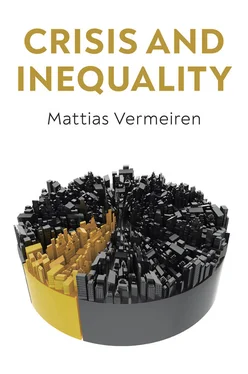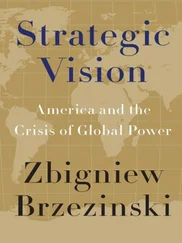Critics of neoclassical economics have argued that the assumptions behind its mathematical models are often simplistic and unrealistic, revealing a conservative bias that is overly optimistic about the efficiency of free markets and pessimistic about the effectiveness of government intervention. The homo economicus is one of the most contested of these unrealistic assumptions: individuals are seen as rational and self-interested actors who maximize their utility by making decisions that are based on full information. This assumption allows neoclassical economists to design mathematical and law-like models of human behaviour and economic decision-making: these economists tend to engage in a logical exercise based on assumptions that are adopted because they can be quantified and modelled , not necessarily because they are true or even sensible. For example, in order to predict consumer behaviour, neoclassical models assume that all people have perfect information about all of the goods that they might want to buy: they know all of the prices and qualities involved and they know how much satisfaction they would receive from every product. Another assumption of neoclassical economics, closely associated with the first one, is that free markets balance supply and demand in the long term and are self-adjusting: it is presumed that the economy disturbed by a shock will always return to a new equilibrium (see chapter 1on the meaning of market equilibrium). There is, obviously, a liberal bias to this line of thinking: if markets are assumed to be stable and self-correcting, it is better to allow them to function on their own, without excessive government intervention. This efficient market hypothesis provided, as we will see, ideological support for the excessive deregulation of the banking system, which – together with the rise in inequality – was an important cause of the global financial crisis.
In response to such criticisms, neoclassical economists usually reply that the main purpose of their mathematical models is to predict economic behaviour rather than formulate realistic assumptions about how the world really works. In his essay on the methodology of positive economics, US economist and Nobel laureate Milton Friedman argues that it does not really matter that the assumptions behind a theory are unrealistic as long as the theory’s predictions are correct:
the relevant question to ask about the ‘assumptions’ of a theory is not whether they are descriptively ‘realistic’, for they never are, but whether they are sufficiently good approximations for the purpose in hand. And this question can be answered only by seeing whether the theory works, which means whether it yields sufficiently accurate predictions. 8
Friedman’s argument was reiterated by William Prescott – another Nobel laureate – in his 2016 paper RBC Methodology and the Development of Aggregate Economic Theory : ‘Reality is complex, and any model economy used is necessarily an abstraction and therefore false. This does not mean, however, that model economies are not useful in drawing scientific inference.’ 9
Nonetheless, neoclassical economists have a bad track record in making correct predictions. The global financial crisis of 2007–9 caught most neoclassical economists by surprise. As Ben Bernanke, former president of the US central bank, conceded, neoclassical economists ‘both failed to predict the global financial crisis and underestimated its consequences for the broader economy’. 10To be fair, some experts warned about the dangers of housing bubbles. But in the final analysis, the consensus was that the situation was not as bad as it seemed. In the wake of the crisis, research staff at the IMF or central banks have also been notoriously wrong regarding their projections of economic variables like gross domestic product, inflation and unemployment. Political economy as an academic discipline might be equally bad at making predictions about the future, but tends to be much better in explaining post hoc why economic events occurred in the way they did. The reason is that political economists do not base their theories on unrealistic assumptions and that they take into account non-economic factors that all too often ignored by neoclassical economists.
One of these factors is power and politics: political economists are critical of the neoclassical presumption that economic phenomena can be separated from relations of power and politics. Neoclassical economists believe that someone’s wage or income is a reflection of the marginal productivity of his or her labour – that is, the additional revenue a firm gets from hiring that particular individual (see chapter 1). As a typical example from neoclassical reasoning, consider the following statement by Greg Mankiw – author of one of the most famous introductory handbooks in neoclassical economics, Principles of Economics :
Most of the very wealthy get that way by making substantial economic contributions, not by gaming the system or taking advantage of some market failure or the political process … Take the example of pay for chief executive officers (CEOs). Without doubt, CEOs are paid handsomely, and their pay has grown over time relative to that of the average worker … [However], the most natural explanation of high CEO pay is that the value of a good CEO is extraordinarily high. 11
Yet this neoclassical conception of CEO compensation ignores the role of the government, the legal system and all other institutions and norms that underpin the political power of CEOs and might have played a role in helping them receive high incomes. For instance, the highest federal marginal tax rate in the United States fell from 91 per cent for all personal income in the 1960s to less than 40 per cent in the 2000s. Such changes in the US tax system were vital in boosting top incomes of CEOs. In their book Winner-Take-All Politics: How Washington Made the Rich Richer – and Turned Its Back on the Middle Class , political scientists Jacob Hacker and Paul Pierson argue that the dramatic increase in income inequality in the United States since 1978 has been the result of political forces, rather than the natural and inevitable result of technological innovation and increased competition associated with globalization. They note that the balance of political power shifted sharply in favour of those at the very top of the economic ladder. Financial and economic elites have used their political clout to dramatically cut taxes, dismantle social welfare and liberalize labour markets, reduce the power of labour unions and deregulate the financial industry. 12
In the following chapters of this book, we will provide a comprehensive overview of the many policy and institutional changes that have shifted political power from workers to the top managers of firms and their shareholders and have contributed to the rise in inequality in income and in wealth. These changes fall under the rubric of neoliberalism – a set of policies grounded in neoclassical economic theory and aimed at maximizing the role of markets in the allocation of economic resources and reducing the role of the state to the principal enforcer of ‘market efficiency’ in the economy. 13Neoliberalism tried to undo the Keynesian compromises of the post-war era of egalitarian capitalism through a process of marketization – such as lifting restrictions on international economic transactions and subjecting governments and workers to the discipline of global market forces (see chapter 2). The compromises of the Keynesian era arose from the Great Depression of the 1930s, which had created a new consensus among economists and policymakers that activist state intervention in the economy and a more equitable distribution of income and wealth were the most effective ways to sustained prosperity:
Читать дальше











